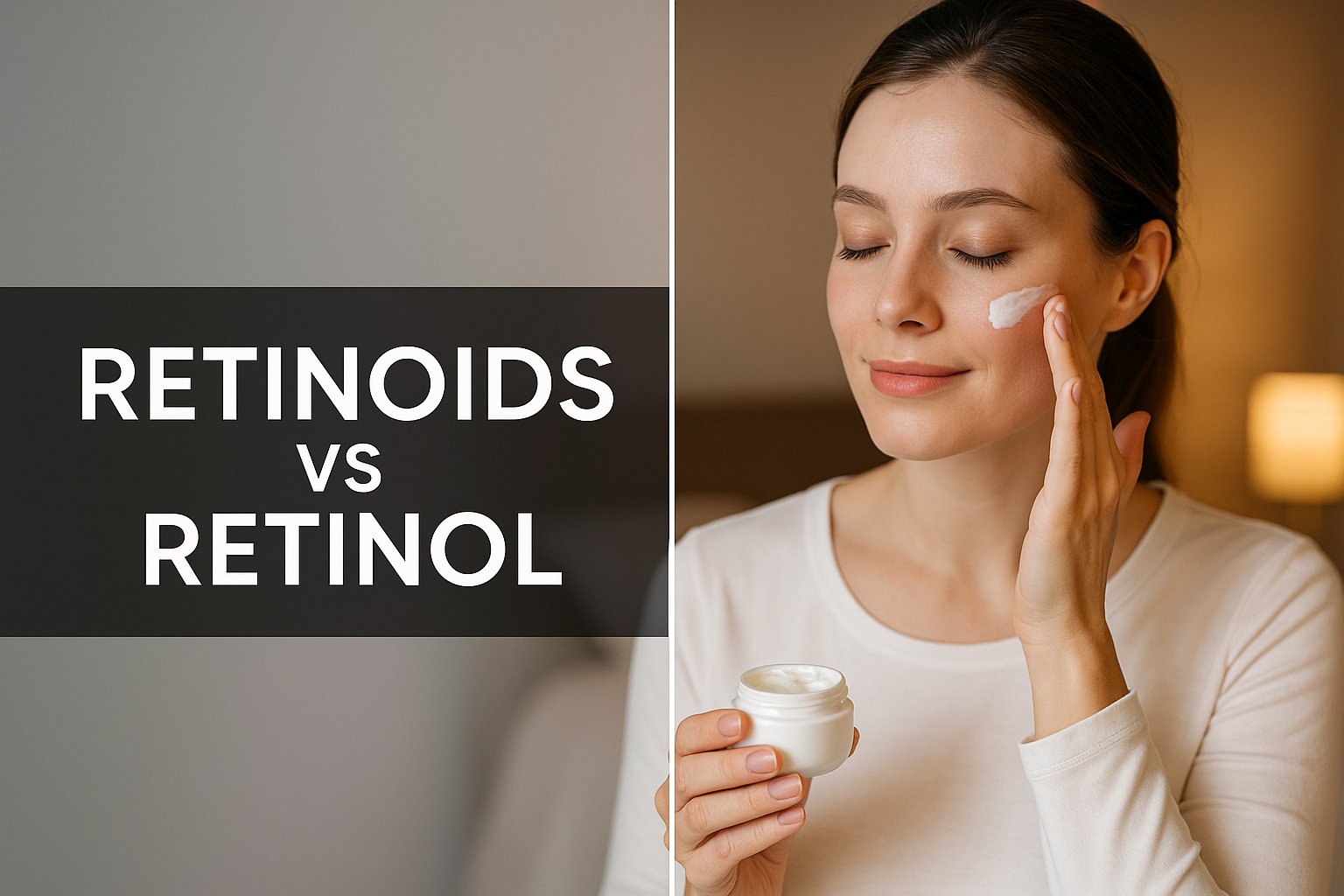When it comes to skincare, especially anti-ageing and acne treatments, retinoids and retinol often steal the spotlight. Though they are frequently mentioned in the same breath, these two are not the same. They belong to the same vitamin A family, but their strength, availability, and function vary significantly. Understanding the difference can help you choose the right one for your skin concerns.
What Are Retinoids and Retinol?
Both retinoids and retinol are derivatives of vitamin A, a powerhouse ingredient in skincare known for its ability to promote cell turnover, improve collagen production, and reduce signs of ageing.
Retinoids :
The term “retinoids” refers to a class of compounds derived from vitamin A. They are available in both prescription and over-the-counter forms and are typically more potent than retinol. Common types include:
- Tretinoin (Retin-A)
- Adapalene (Differin)
- Tazarotene (Tazorac)
- Retinaldehyde
Retinol :
Retinol is a type of retinoid but is typically weaker and available over the counter. It must convert into retinoic acid through two steps in the skin, which makes it gentler but slower to work.
Key Differences Between Retinoids and Retinol :
- Potency: Retinoids are stronger and faster acting; retinol is gentler and slower.
- Availability: Retinoids often require a prescription; retinol is OTC.
- Tolerance: Retinol is better suited for beginners and those with sensitive skin.
- Results Timeline: Retinoids work in 4–8 weeks; retinol may take 12+ weeks.
Which One Should You Choose?
For Beginners and Sensitive Skin: Start with retinol in a low concentration like 0.25% or 0.5%.
For Acne or Advanced Ageing: Use prescription retinoids under dermatological supervision.
How to Use Retinoids and Retinol?
- Start 2-3 nights a week, then increase gradually.
- Apply a pea-sized amount to clean, dry skin.
- Moisturise afterwards.
- Always wear sunscreen the next day.
- Don’t mix exfoliating acids or vitamin C in the same routine.
Common Myths Debunked :
- Myth 1: Retinol is ineffective — False, it’s clinically proven to work.
- Myth 2: Dry skin can’t use retinoids — False, start slow and moisturise.
- Myth 3: More is better — False, excessive use leads to irritation.
Conclusion:
Both retinoids and retinol are effective skincare ingredients, each suited for different needs. Whether you’re a beginner or dealing with persistent acne and deep wrinkles, choosing the right form can dramatically improve your skin health. Be patient, consistent, and let your skin adjust — the results are worth the wait!
For more Details about tretinoin strength, click here
Latest posts by Marie (see all)
- What Is Florexa Cream? Uses for Facial Hair Reduction Explained - February 13, 2026
- How Demelan Cream Helps Reduce Melasma and Uneven Skin Tone - February 9, 2026
- Why Dermatologists Trust Tretinoin Gel/Cream for Long-Term Skin Repair? - February 6, 2026




